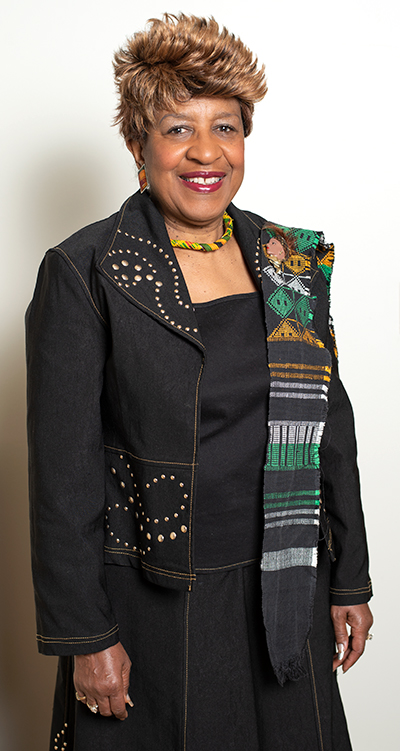MEMBER SPOTLIGHT: Retired teacher from Flint has pushed for multicultural learning over 50 years
Cleorah Scruggs-DeBose, award-winning lifetime MEA member, saw the curriculum reflected little diversity when she began teaching in Flint in 1970, so she infused multicultural learning into lessons; led NEA to adopt National Multicultural Diversity Day; and still runs a non-profit that hosts an annual event to celebrate diverse cultures.

Where did you grow up, and how did you become a teacher? I grew up in a very fun-loving, church-orientated home in Akron, Ohio. My family was very giving. On Sundays when my mother was preparing dinner and getting us ready for church, she would always say, “Well, I’m going to cook enough in case somebody wants to stop by. You never know, so we’ll put one more potato in the pot.” People knew they were always welcome. I’m the oldest of five children, and Mom would have me helping the younger ones with their homework. That leadership position is how I became a teacher. I love serving and helping others.
What spurred your action when you started teaching 50 years ago? I looked over my classroom and I said, “All these beautiful multicultural children, and yet I don’t have the representation in this classroom.” When they walk in, they need to see themselves. They need to feel, Wow, this is where I need to be. I feel welcome. Here I was, I had been certified to teach elementary school children, but in my toolbox I didn’t have anything on multicultural diversity. So I found myself teaching in the day, and then evenings and nights doing research and trying to get something together so my students would feel the inclusivity that I knew they needed.
How did students respond as you brought more cultural perspectives into your teaching? I saw a more positive attitude. They started looking at things differently, treating each other differently. They needed to see various cultures represented and their contributions to history, like one of my favorite quotes says: Let’s not hesitate to appreciate because we all have done something to make America great.
Is that what you presented in 1993 to persuade the NEA Representative Assembly to adopt the third Monday in October as National Multicultural Diversity Day? The concept in my heart then and still today is that we have to embrace inclusivity, we have to embrace equality. We have to embrace that everybody is important and everybody should have a seat at the table. And we need to not be satisfied until that’s accomplished because we all have something to contribute given a chance.
Then you also formed a non-profit National Multicultural Diversity Day & Institute (NMDI), which this year celebrated the 30th annual community cultural event in Flint. What does that look like? We have good food from different cultures, and we encourage ethnic attire, but it’s just optional. We start out with workshops and displays, and we have important speakers come and talk. Our program this year and last year was centered on the horrific water crisis in Flint, with a theme of respecting clean water as a basic human and civil right. At the end we have a beautiful multicultural fashion show, and then we have a drawing of prizes from donations we get from the community. I couldn’t do it without the help of my outstanding and dedicated friend Phyllis Clark, and my husband (Paul Lawrence DeBose). My mother, who’s 93, is our spiritual advisor. We’re exhausted by the time it’s over, and we always need more money and more volunteers.
You retired from the classroom 22 years ago, and today we have politicians trying to prevent teaching about race and diversity in America. What keeps you going? Helen Keller said, “I am only one, but still I am one. I cannot do everything, but still I can do something. Because I cannot do everything, I will not refuse to do something that I can do.” Hope isn’t optional—we have to have hope. We have to have love if we’re going to make it in these tumultuous times. We have to be strong for those that are coming behind us, those that are walking beside us. As the song says, “I’ve come too far from where I started from. Nobody told me that the road would be easy, but I must keep on keeping on.”


